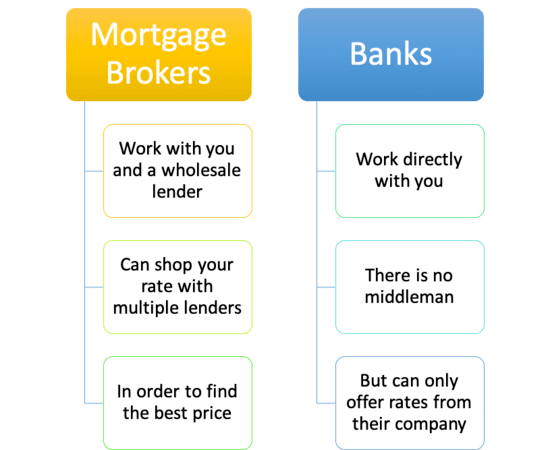Jumbo Loan Options: Tailored Funding for Expensive Properties
Jumbo Loan Options: Tailored Funding for Expensive Properties
Blog Article
Recognizing What a Jumbo Lending Entails and Exactly How It Differs From Traditional Financings
Browsing the intricacies of jumbo lendings exposes a financing choice tailored for those venturing into high-value realty, usually exceeding the limitations set by the Federal Housing Financing Agency. In contrast, traditional fundings are usually much more available, gaining from backing by entities such as Fannie Mae and Freddie Mac. The substantial risk related to jumbo lendings necessitates more strict qualification demands, consisting of greater credit report and considerable deposits. As these two loan types accommodate differing monetary landscapes, recognizing their nuances is vital for making informed decisions in the intricate world of real estate funding. Exactly how do you identify which course finest suits your economic technique?
Meaning of Jumbo Fundings
Jumbo lendings are a kind of home loan that go beyond the adhering finance limitations set by the Federal Housing Money Agency (FHFA) These lendings cater to customers who need to finance residential properties that are a lot more pricey than what conventional funding limits permit. The FHFA establishes yearly adapting lending limitations, and any kind of car loan surpassing these thresholds is categorized as a jumbo car loan.
Usually, jumbo loans are utilized in high-cost realty markets where home prices considerably go beyond nationwide standards, such as in cosmopolitan locations or deluxe real estate fields. As these finances are not qualified for acquisition by Fannie Mae or Freddie Mac, they bring integral threats for lending institutions as a result of their bigger size and non-conformity (jumbo loan). Loan providers often enforce much more rigorous certification requirements for jumbo financings than common adjusting car loans.
Consumers seeking jumbo loans have to generally demonstrate a solid financial profile, consisting of a greater credit rating, robust revenue verification, and significant deposit, often 20% or more. Furthermore, loan providers may call for much more considerable paperwork to analyze the debtor's capability to take care of bigger month-to-month payments. Comprehending the specific qualities of big fundings is critical for possible customers browsing this segment of the home mortgage market.
Traditional Financings Overview
While jumbo fundings accommodate high-value residential property funding, conventional car loans represent the more typical home loan choice in the real estate market. These loans are not insured or guaranteed by any type of federal government entity, such as the Federal Real Estate Administration (FHA) or the Division of Veterans Matters (VA) Rather, they are backed by exclusive lenders and stick to guidelines set by government-sponsored enterprises (GSEs) like Fannie Mae and Freddie Mac.
Conventional loans are commonly offered with fixed or adjustable rate of interest and vary in regards to period, frequently covering 15 to three decades. Consumers usually favor standard financings for their foreseeable month-to-month repayments, which can help with long-term economic planning. Additionally, they are readily available for primary houses, 2nd homes, and financial investment homes, providing flexibility to fulfill varied customer requirements.

Trick Differences Between Finances
Understanding the subtleties in between various kinds of fundings is critical for prospective property buyers browsing the intricate mortgage landscape. At the forefront of this decision-making process are conventional fundings and big financings, each possessing unique characteristics and serving different debtor demands. The primary difference rests in the finance quantity. Big loans exceed the adhering car loan limitations set by the Federal Housing Financing Company (FHFA), which vary by region. On the other hand, standard car loans abide by these limitations and are usually bought by government-sponsored entities like Fannie Mae and Freddie Mac.

Furthermore, the down repayment requirements can vary considerably. Jumbo loans typically need bigger deposits, occasionally exceeding 20%, to reduce danger. Traditional loans, conversely, may enable lower deposits, with some programs accepting as low as 3% for certified purchasers.
Certification Needs
Safeguarding a big lending involves meeting more stringent qualification requirements contrasted to standard financings, mirroring the boosted danger to loan about his providers. These fundings, which surpass the adhering car loan limits set by the Federal Real Estate Finance Firm (FHFA), are not qualified for purchase by Freddie Mac or Fannie Mae, thus subjecting loan providers to greater economic threat - jumbo loan. As a result, customers must show a high credit reliability and monetary stability
A durable credit report, commonly 700 or greater, is essential for approval. Lenders likewise expect a reduced debt-to-income (DTI) ratio, often not going beyond 43%, making sure that borrowers can take care of considerable regular monthly payments alongside other financial obligations. A significant money get is typically called for, commonly amounting to 6 months of mortgage repayments, to reassure loan providers of the consumer's financial durability.
Down repayment expectations are likewise elevated, often starting at 20% or more of the building's worth. While this is a safeguard for lenders, it necessitates significant ahead of time funding from debtors.
Selecting the Right Financing
Browsing the intricacy of big loans calls for mindful consideration when picking one of the most ideal financing alternative. With the more comprehensive array of alternatives available to those looking for big loans, the decision-making process needs to entail an extensive analysis of one's financial account and lasting objectives. Unlike standard fundings, jumbo fundings typically come with more stringent requirements and differed rate of interest prices, which demand extensive research study and a clear understanding of one's economic standing.
When choosing in between different big loan offerings, it is crucial to examine the lending terms, including interest prices, settlement routines, and connected charges. Customers must contrast the rates given by various lending institutions to ensure they secure the most desirable terms. Additionally, recognizing the effects of taken care of versus variable-rate mortgages (ARMs) is crucial, as each choice provides distinctive benefits and risks depending upon market conditions and individual monetary techniques.
Involving with an economic advisor or home mortgage broker can offer beneficial insights tailored to private scenarios. These experts can assist Resources in navigating the nuances of jumbo lendings, making certain that debtors are educated and equipped to select a funding that straightens with their economic goals, inevitably helping with a smoother home-buying procedure.
Final Thought
In summary, jumbo loans function as a financial tool for acquiring high-value properties, demanding rigorous eligibility requirements and higher rates of interest because of the elevated danger for lending institutions. Unlike conventional financings, which satisfy FHFA restrictions and may receive support from Fannie Mae or Freddie Mac, jumbo financings need a minimal credit report of 700 and significant down payments. Recognizing these differences is crucial for customers in high-cost property markets to establish the most suitable funding alternative for their requirements.
The FHFA establishes annual adhering car loan restrictions, and any finance going beyond these thresholds is identified as a jumbo loan.
At the center of this decision-making procedure are big car loans and standard financings, each having unique qualities and offering different debtor needs.Safeguarding a big lending includes fulfilling much more rigid qualification needs compared to conventional lendings, mirroring the increased threat to lending institutions. Unlike standard financings, big car loans often come with stricter requirements and differed interest rates, which demand comprehensive research study and a clear understanding of one's monetary standing.
Unlike traditional fundings, which adjust to FHFA limitations and might receive support from Fannie Mae or Freddie Mac, jumbo financings call for a minimal credit scores rating of 700 and significant down settlements.
Report this page